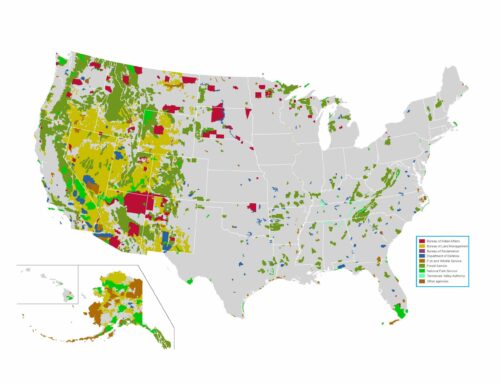by Greg Walcher, E&E Legal Senior Policy Fellow
As appearing in the Daily Sentinel
Last week’s column about wolves carrying coronavirus touched a nerve with some readers, concerned about the current epidemic. One took me to task about scientific accuracy, so it makes sense to clarify it. To be sure, I get taken to task a lot for the views expressed here, and mostly it’s rewarding to know someone is reading. I’ve even been told a national environmental organization monitors this space, and occasionally pays people to respond with its carefully crafted talking points.
This, however, was from a scientist I’ve known for years, one whose credentials are beyond question, and whose opinion I greatly respect. He assures me that “There is no evidence whatsoever that wolves carry COVID-19,” the specific coronavirus so much in the news lately. As he says, “There is a great diversity and many species of coronaviruses in nature.” Indeed, those include hoof-and-mouth disease, which infects deer, elk, cattle, and sheep; Canine respiratory coronavirus (CRCoV); and Pantropic canine coronavirus. Wolves are also common carriers of bubonic plague, hydatid disease, and alveolar echinococcosis (AE), a disease caused by tapeworms found in wolves, foxes, and coyotes. The Centers for Disease Control (CDC) in Atlanta says it causes tumors in the liver, lungs, brain, and other organs that, if left untreated, can be fatal. I don’t know anybody who wants more of that in Colorado, either.
Coronaviruses are very closely related. They are “zoonotic,” meaning they can be transmitted from animals to humans. In humans, they cause illnesses ranging from the common cold to very severe respiratory diseases, including Middle East Respiratory Syndrome (MERS) and Severe Acute Respiratory Syndrome (SARS). You might remember the SARS epidemic of 2002-03, which infected 8,000 people around the world, killing about a tenth of them. It is a form of coronavirus called SARS-CoV. The current outbreak is called SARS-CoV-2, showing how closely the strains are related. If you’re confused about the alternate names of COVID-19 and SARS-CoV-2, that’s only because the World Health Organization names the disease, but the International Committee on Taxonomy of Viruses names the species. Only government researchers can dream up such distinctions. All SARS and coronavirus strains are closely related.






